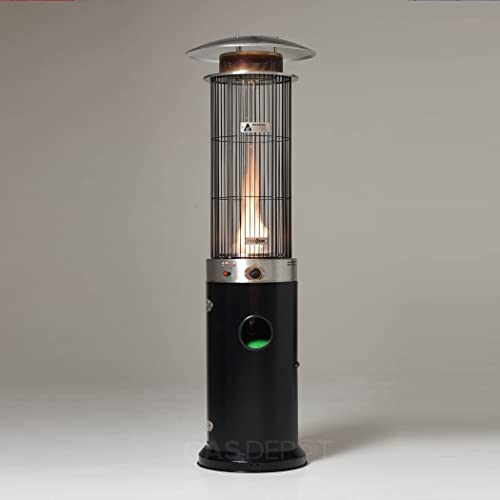The Comprehensive Guide to Gas Patio Heaters
As outdoor living ends up being increasingly popular, gas patio heaters have become a necessary aspect for extending the outdoor entertaining season. Whether for a cozy evening with buddies or a vibrant family event, these heaters provide warmth and comfort that can change any outdoor space. This short article checks out the various elements of gas patio heaters, including their types, advantages, functional mechanics, upkeep pointers, and factors to consider for purchasing one.
What is a Gas Patio Heater?
A gas patio heater is a type of heating appliance developed specifically for outdoor usage. Typically sustained by propane or natural gas, these heaters generate warmth to fight the chill of the night air, enabling outdoor social activities to continue even under cooler temperature levels.
Kinds Of Gas Patio Heaters
Gas patio heaters been available in several various designs, each matched for different requirements and looks. The typical types consist of:
Freestanding Heaters:
- These are the most typical type and are generally high, with a broad base and a heater component at the top.
- They can quickly be walked around and are ideal for numerous outdoor settings.
Tabletop Heaters:
- Smaller and more compact, tabletop heaters are created to sit on tables or other surfaces.
- They supply warmth for smaller sized locations and are generally much easier to store.
Wall-Mounted Heaters:
- These are repaired to a wall and are an excellent option for outdoor patios with limited space.
- They offer a more irreversible heating option and can match outdoor decoration.
Patio Fire Pits:
- While not solely heaters, gas fire pits supply heat and ambiance simultaneously.
- They can serve as a centerpiece for outdoor events.
| Heater Type | Description | Best For |
|---|---|---|
| Freestanding | Tall, mobile systems with a heating component on the top | Big open locations |
| Tabletop | Compact models perfect for table surface areas | Little gatherings |
| Wall-Mounted | Repaired systems offering consistent heat | Smaller sized patios |
| Patio Fire Pits | Combined heating and ornamental feature | Ambiance and heat |
Advantages of Gas Patio Heaters
Investing in a gas patio heater offers many advantages:
- Extended Outdoor Enjoyment: Gas heaters enable house owners to enjoy their outdoor patios even during cooler months.
- Quick Heating Capability: Gas heaters heat up rapidly, supplying instant remedy for the chill.
- User-Friendly Operation: Most gas heaters include easy ignition controls for ease of use.
- Visual Appeal: Many gas heaters are designed to be visually attractive, boosting the general look of your outdoor space.
- Flexible Fuel Options: Availability of both propane and gas designs deals with different needs and preferences.
Operational Mechanics
Gas patio heaters operate by converting fuel into radiant heat. Here's a streamlined breakdown of how they work:
- Fuel Source: Most gas heaters use propane or gas. The kind of fuel impacts performance and accessibility.
- Ignition System: Most designs include either a manual ignition (utilizing a lighter or match) or an electronic ignition (push-button).
- Heating Element: Once fired up, gas flows through a burner, where it is combusted to create heat. Convected heat spreads from the heating element.
- Heat Diffuser: Some heaters have a reflector to assist disperse heat more uniformly across a broader area.
Fuel Comparison
| Fuel Type | Pros | Cons |
|---|---|---|
| Propane | Portable, commonly offered | Requires tank replacement/refill |
| Gas | Cost-efficient if connected to a supply | Installation more complicated |
Upkeep Tips for Gas Patio Heaters
Correct care will extend the life of gas patio heaters. Here are some necessary upkeep ideas:
- Regular Cleaning: Keep the heater clean from dirt and debris. Frequently wipe down the surfaces.
- Inspect Gas Supply Lines: Check for leakages or fractures in the gas lines. Use websites to discover leakages by observing bubbles.
- Seasonal Checks: Before using a heater, examine all parts and repair or replace any damaged parts.
- Storage: During off-seasons, save the heater in a dry place or cover it for defense.
- Professional Servicing: Consider an expert check-up every year, particularly for gas designs.
Factors to consider When Purchasing a Gas Patio Heater
When selecting a gas patio heater, keep the following elements in mind:
- Heating Capacity:
- Measured in BTUs, a greater BTU rating supplies more heat.
- Size and Weight:
- Depending on the space readily available and whether the heater needs to be portable.
- Material:
- Stainless steel heaters offer durability and resistance to rust and deterioration.
- Design:
- Choose a design that matches your outdoor decor.
- Security Features:
- Look for automated shut-off functions or security tilt valves to prevent mishaps.
Frequently asked questions
Q: Are gas patio heaters safe to use?A: Yes
, when used according to the producer's guidelines and security standards, gas patio heaters are safe. Constantly guarantee correct ventilation.
Q: How long can one propane tank last?A: A standard 20 lb
propane tank can last anywhere from 8 to 30 hours, depending on the heat setting. Q: Can gas patio heaters be used indoors?A: No,
gas patio heaters are designed for outdoor usage only due to the risk of carbon monoxide gas accumulation in enclosed spaces. Q: Do gas patio heaters require assembly?A: Most freestanding designs require fundamental assembly
, while tabletop and wall-mounted options might need more
specific assembly. Gas patio heaters are an attractive service for those looking to improve their outdoor experiences throughout the year.
By comprehending the different types, benefits, and functional mechanics, prospective purchasers can make educated choices that line up with their requirements. Correct maintenance and security factors to consider will make sure that these heaters remain efficient and safe, offering convenience to outdoor gatherings for numerous seasons to come. With careful selection and care, a gas patio heater can end up being a beloved addition to any outdoor home.

